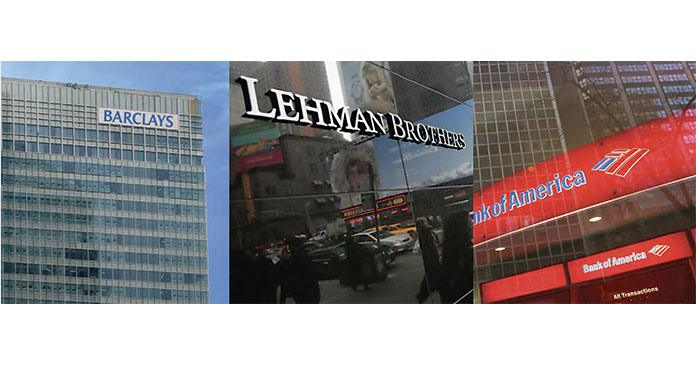Unable to reach a consensus with Lehman on a plan to sell the entire company, the two banks are now trying to sell their stakes, which total 53 percent, according to people familiar with the matter. The banks’ combined equity stakes in the company are likely worth between $2 billion and $3 billion, according to people familiar with Archstone’s finances.
Lehman owns the rest of Archstone, a company that has full or partial stakes in some 77,000 apartments, largely in major U.S. cities, and that was acquired in 2007 by a group led by the investment bank in a $22 billion deal. Barclays and Bank of America helped finance the deal with both debt and equity.
Lehman, BofA and Barclays share ownership of Archstone, which has stakes in 77,000 apartments, including 800 Sixth Ave. in New York City.
The banks have had talks with four big players in the real-estate world—Blackstone Group LP, Brookfield Asset Management Inc., Equity Residential and AvalonBay Communities Inc.—and at least two others about buying their stakes, people familiar with discussions said. The identities of the other two couldn’t be determined.
The banks and the Lehman estate can’t move forward with a disposition strategy for the whole company unless all three agree, and an accord has proved elusive. Lehman has favored selling Archstone in a public offering, while Barclays has pushed for a private transaction so it could cash out of its investment in Archstone now, instead of waiting the multiple years required by the public route, according to people familiar with the talks. Bank of America has taken more of a middle-of-the-road position, according to people familiar with the matter.
This summer, the ownership group decided to test the private market. Barclays had hoped that, with the commercial real-estate market recovering, bids for the whole company would come in high enough to convince Lehman to do a private deal.
But that didn’t happen. About five weeks ago, bids were received for all or parts of Archstone from Brookfield, Blackstone, Equity Residential and AvalonBay, but they weren’t high enough to dissuade Lehman from pressing for the public offering, people familiar with the matter said. Commercial real-estate markets have cooled in the past few months, as worries have grown over the economy’s health.
The amounts of the bids weren’t available. But Archstone would likely be worth between $16 billion and $18 billion if sold today, according to people familiar with the company.
A buyer of the banks’ stakes would have to work with Lehman on the ultimate disposition of Archstone. Lehman has stood firm in its commitment to doing a public offering of Archstone. A plan pending approval in bankruptcy court calls for Lehman to dispose of all of its assets by the end of 2014.
One complication is that the banks, under the terms of Archstone’s ownership agreement with Lehman, must offer Lehman the first chance to buy out their stake at an announced price. It is questionable that Lehman’s creditors would approve such a move using the estate’s own cash. But another scenario would involve Lehman bringing in an investment partner.
The move to sell comes as both Barclays and Bank of America have generally been looking to sell off many real-estate investments made during the boom. Bank of America last month reached a deal to sell $880 million in commercial real estate loans, one of the largest commercial mortgage portfolio sales of the year. It also has been selling billions of dollars of other assets that aren’t part of its core business. Barclays began selling the bulk of its U.S. legacy portfolio earlier this year.
The 2007 purchase of Archstone was one of the largest-ever leveraged buyouts of a realestate company. The investment, however, quickly proved to be an albatross for Lehman: Just over a year later, the investment bank collapsed, in part because of the burden of more than $30 billion in commercial realestate exposure. Archstone is the largest single real-estate investment remaining on the failed investment bank’s books.
Authors: Robbie Whelan and Eliot Brown, wsj.com














